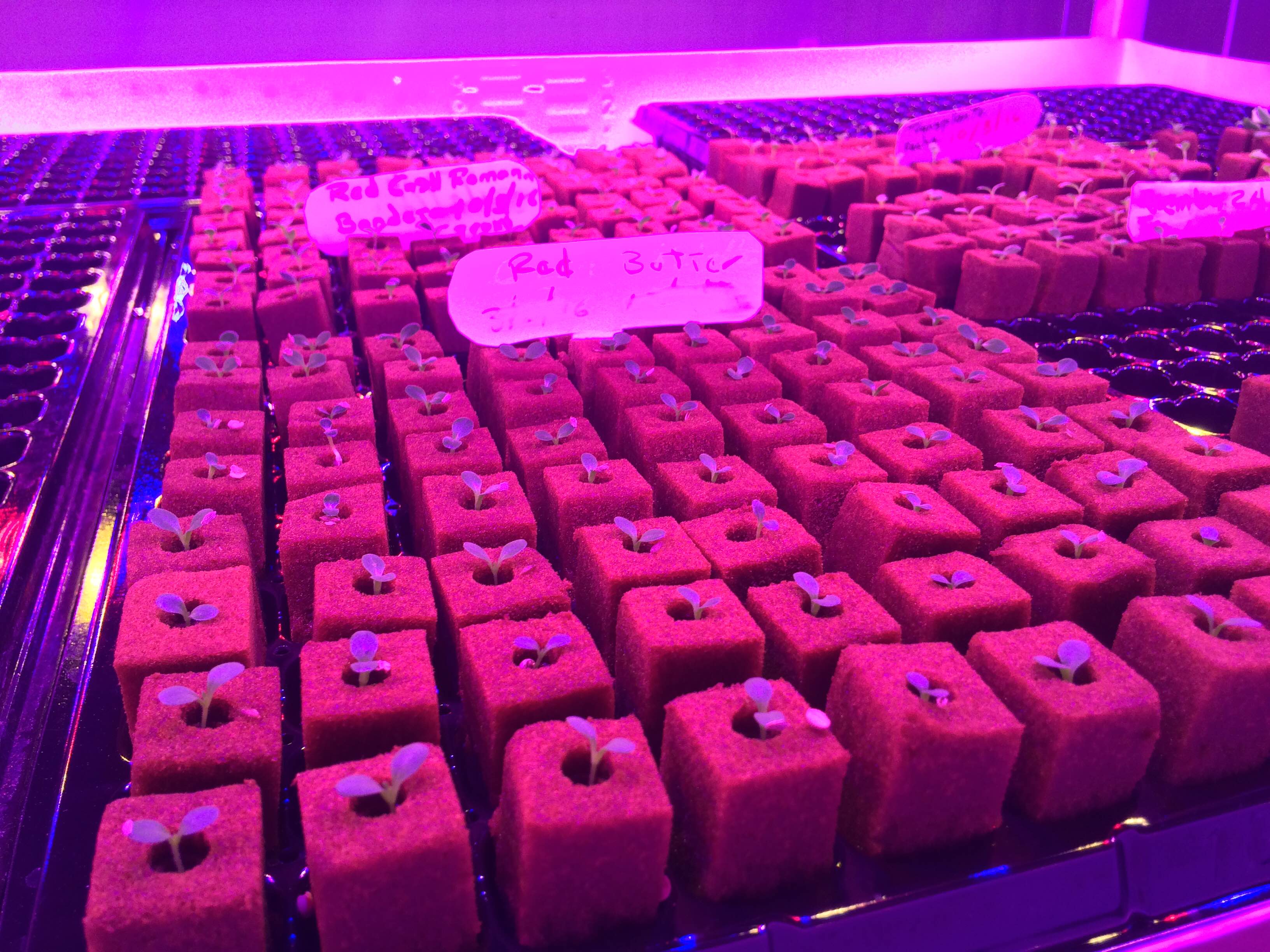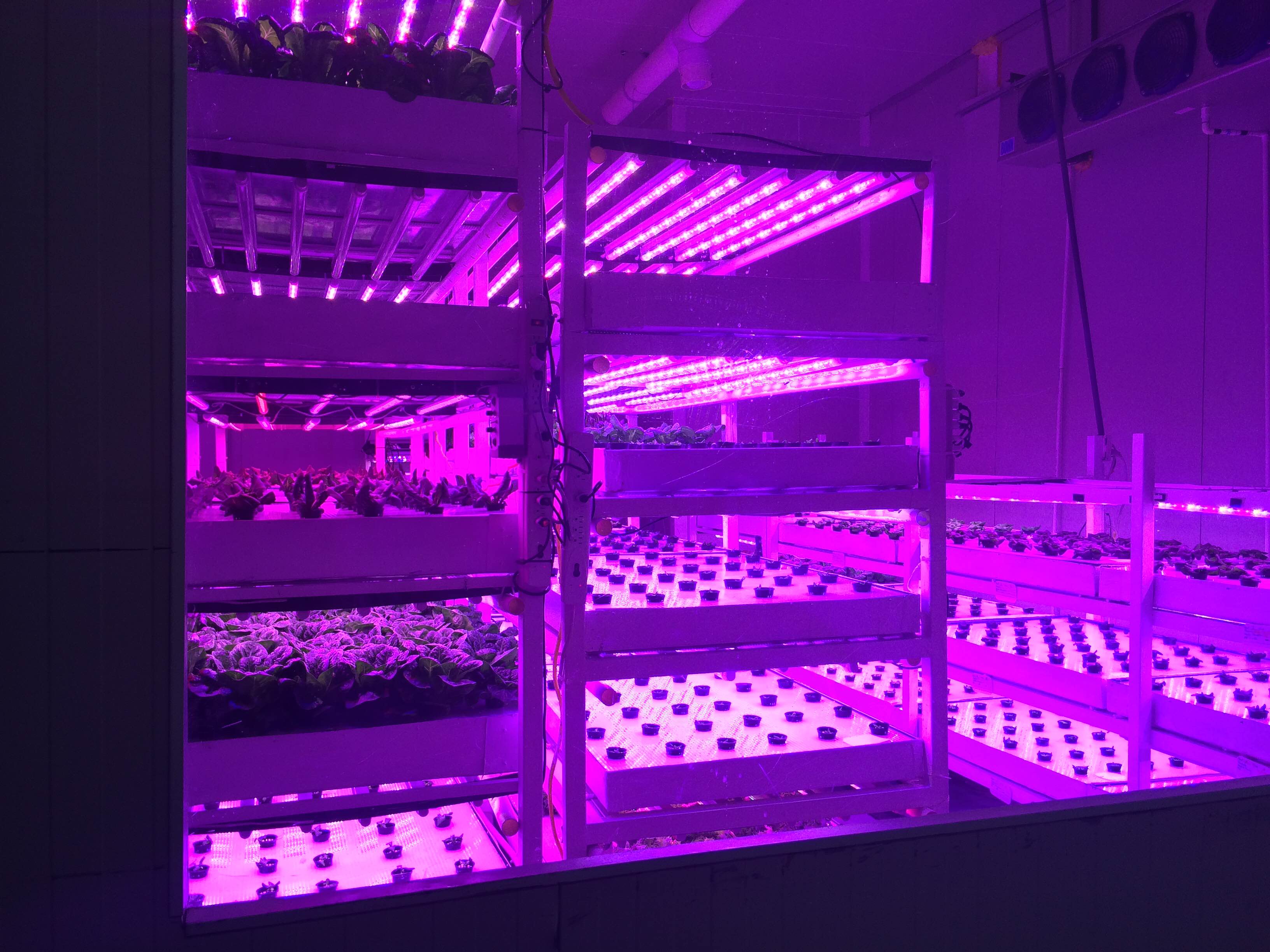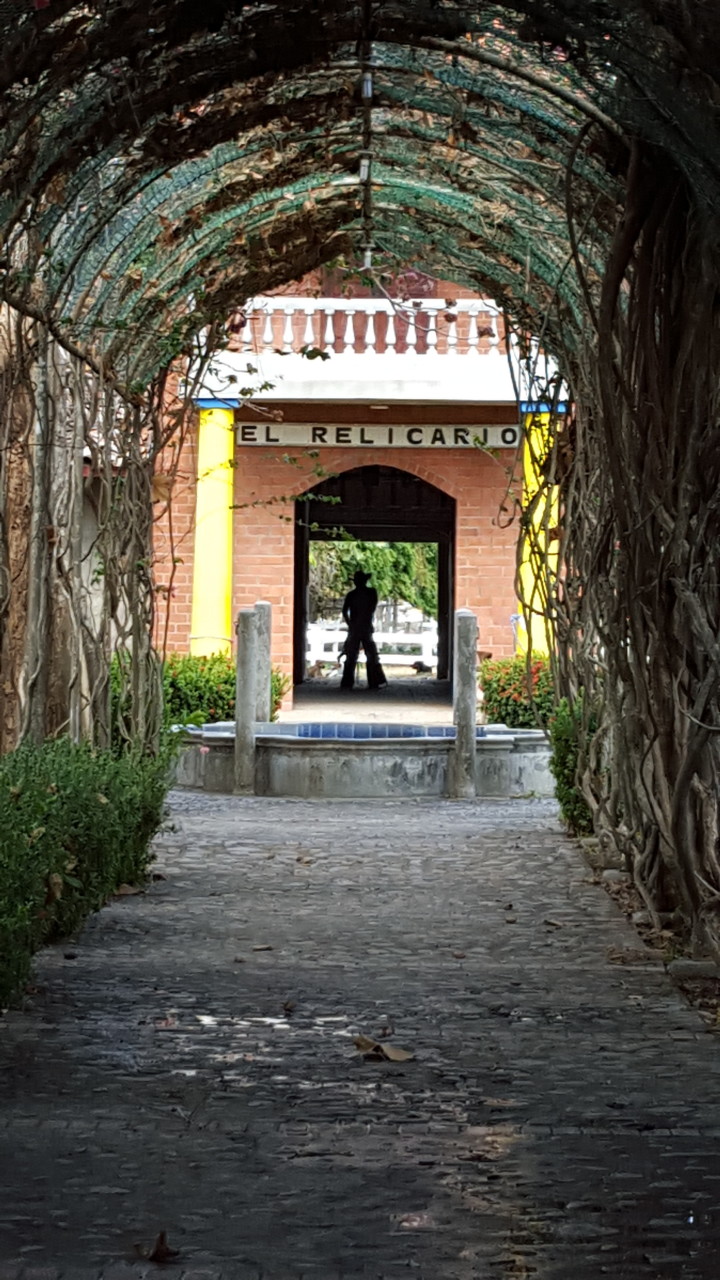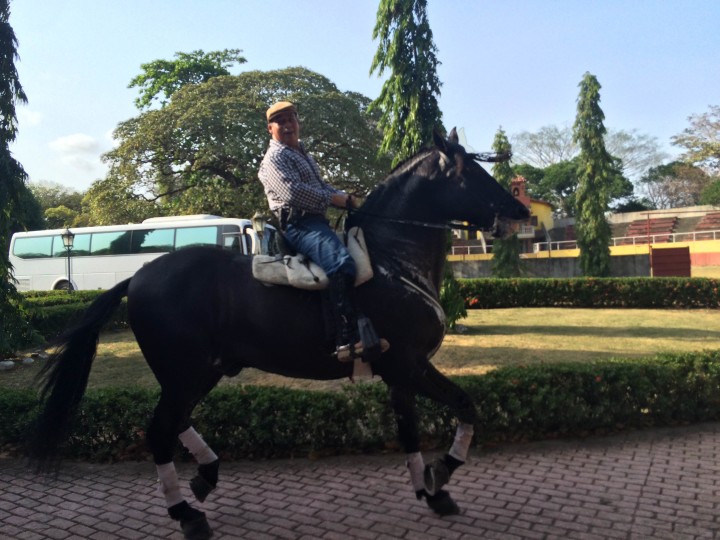Wednesday, March 2
Karlie Elliott Bowman, David Mool, & Bradley Uken – Presiding Fellows
We’re winding down. Tomorrow is the last day of official visits. We are all a bit confused about what day it is. Tuesday? Wednesday? Thursday?
We traveled two hours from Panama City today for diverse farm visits. None of us had ever experienced anything quite like these farms before.
The first stop was at Urban Vertical Farms. Maria Victoria Guardia, who is an administrative assistant with USDA FAS out of the American Embassy here in Panama, accompanied us on this visit.
At Urban Farms we learned about their unique approach for technology to feed a growing world. The company is committed to food production, processing and packaging all under one roof. They are using vertical farming and hydroponics to grow food in a controlled environment. At this point they are producing lettuces and herbs.

The seedling lettuce plants at Urban Farms.
The company is growing and expanding. With operations currently in Panama and Orlando, Florida, the company is also working to establish franchisees globally.
The company is currently working to assemble 100% automation. Once the automation process is established, the company will produce 7,500 bags of lettuce per month for Panama consumption and 3,000 bags of herbs. They estimate that in Orlando they will grow 250 racks of food that are 16 levels high.
Producing food in this way costs 30% less and requires no tilling, no pesticides, and no waste.

A view of the pallets of lettuce vertically stacked and in a controlled environment, at Urban Farms.
The visit was certainly eye-opening and as Dr. Easter added to the conversation, “Vertical farming is an important paradigm change and is an important to the future and how we will feed a growing world.”
The second stop of the day was to a ranch called Hato San Jose, located in Penonome, Cocle. Don Jorge Arauz Arango is the Proprietor. This stop was quite exciting for our classmate Marc Bremer, who we like to call our class’s cowboy.
The ranch is internationally known for breeding and training Spanish and Colombian horses. The ranch is absolutely gorgeous and we received a lovely tour– we hope you enjoy the photos!

During the tour we learned that the cost for one horse is $100,000. As for breeding, it can cost anywhere from $1500- $3000 per horse and they are breeding approximately 400.
In addition to breeding and training the horses, the family has 6,500 head of cattle, 8,400 acres of cropland – of which 3,200 acres are rice. They are able to produce two rice crops a year.
After our tour we were treated to a horse show in the on-site arena. For many of us, this was a very new experience. They demonstrated basic movements of dressage. It was certainly a once in a lifetime experience.
 Thanks for following us on our great journey as we learn more about global agriculture. This is the trip of a lifetime. As we continue learning, I like to keep another quote from Dr. Easter in mind, “We must be globally imminent to be locally relevant.”
Thanks for following us on our great journey as we learn more about global agriculture. This is the trip of a lifetime. As we continue learning, I like to keep another quote from Dr. Easter in mind, “We must be globally imminent to be locally relevant.”

